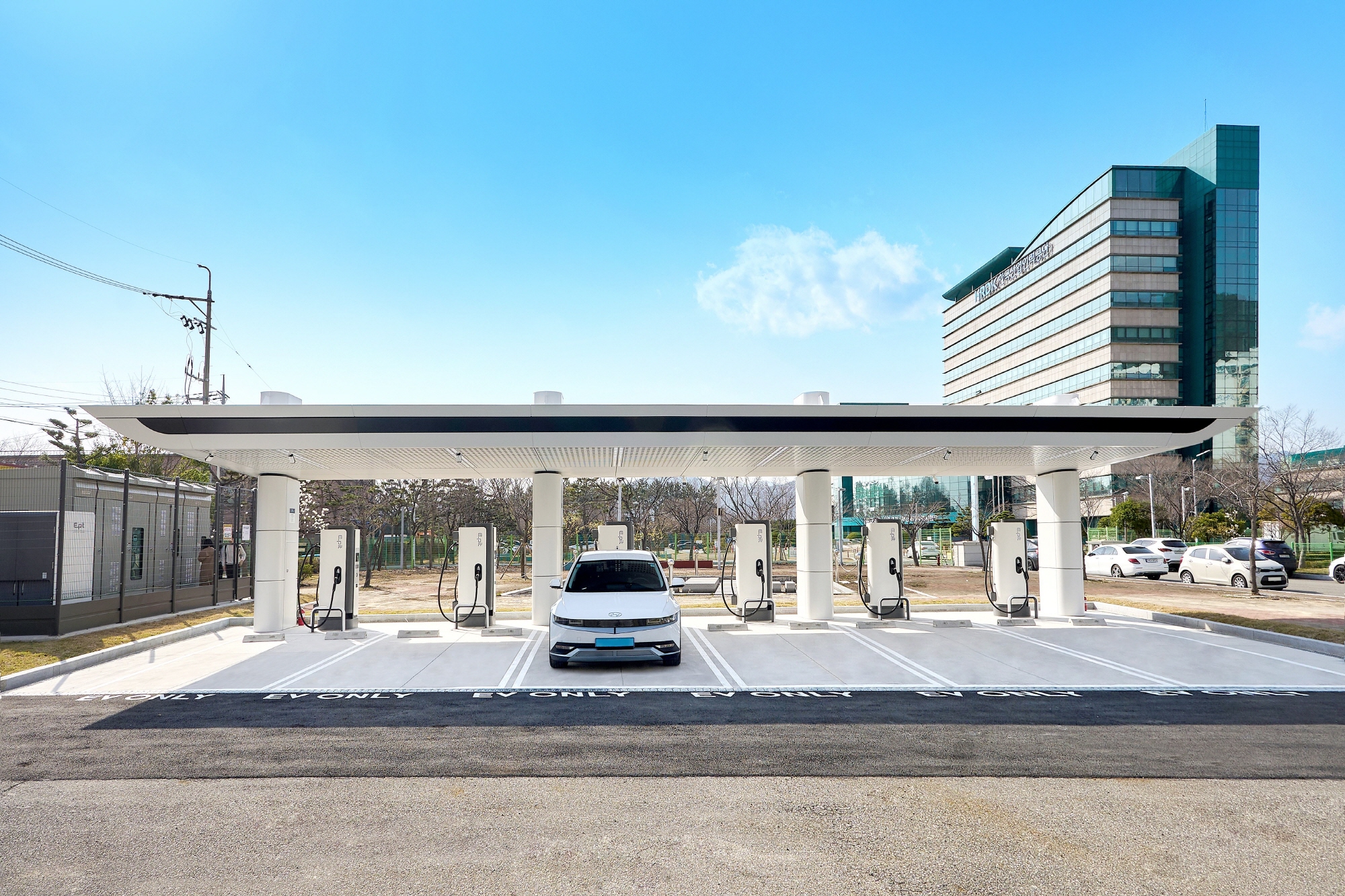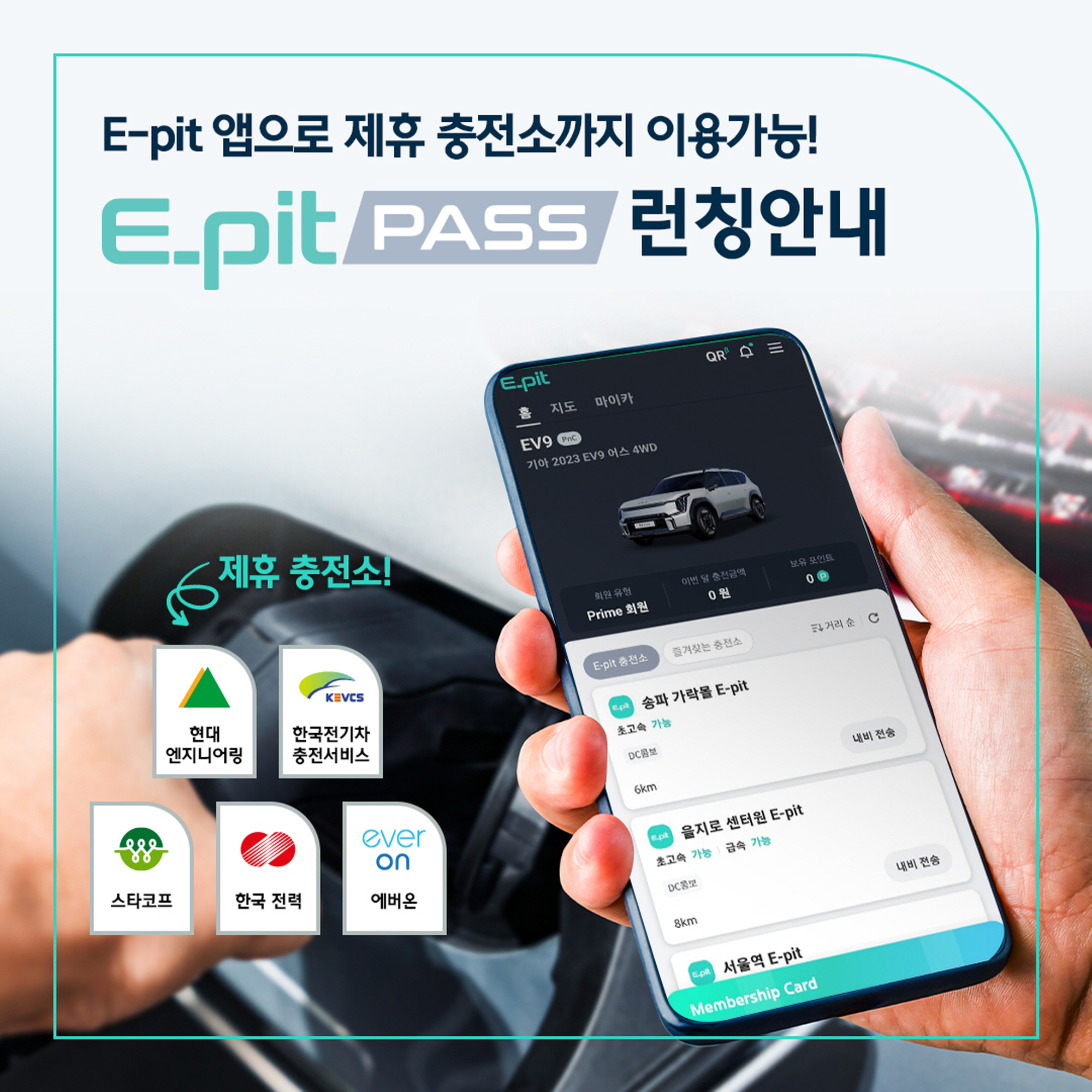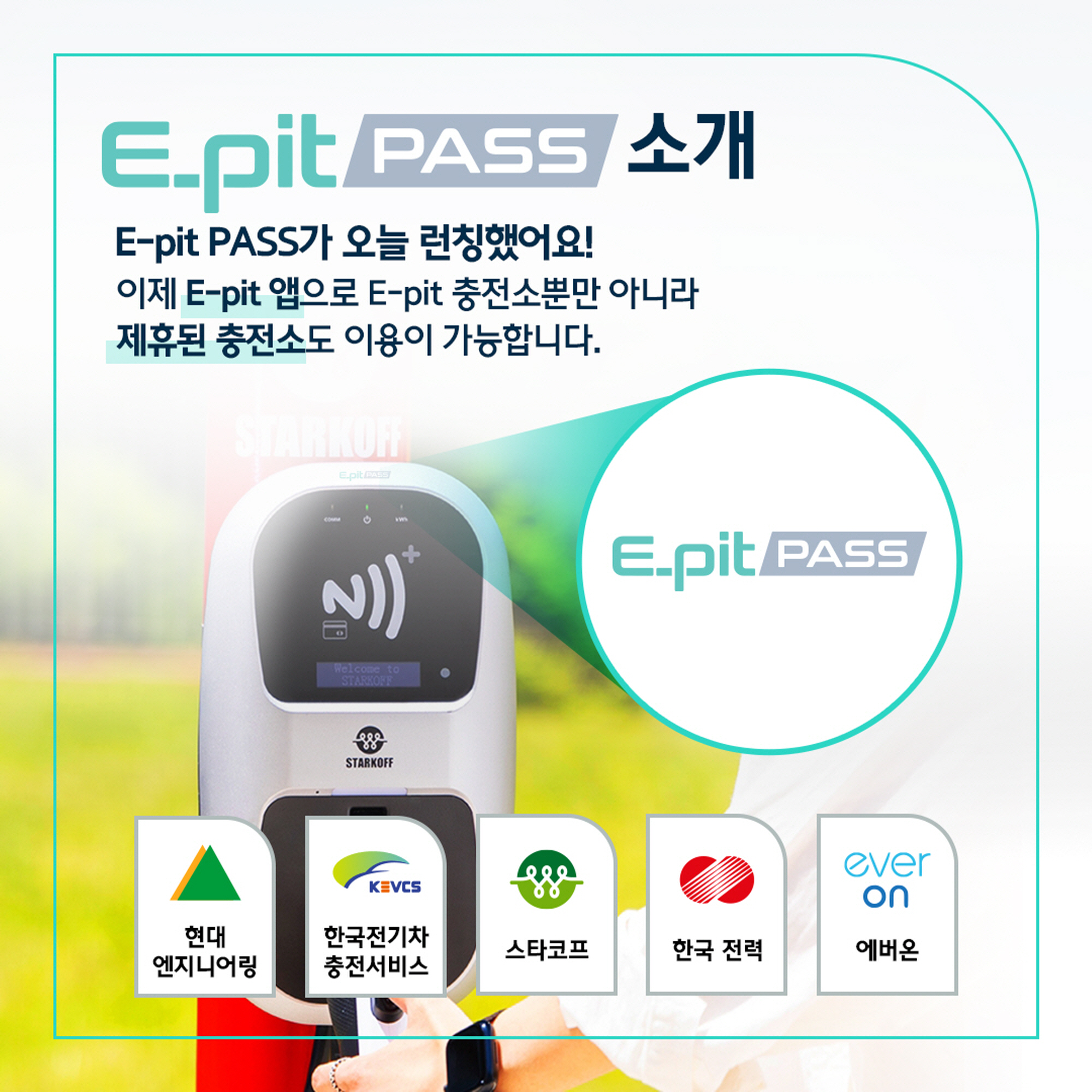
Hyundai Motor Group is making significant efforts to provide a globally superior charging experience through its ultra-fast charging systems and proprietary charging services for electric vehicles.
Since April 2021, Hyundai Motor Group has launched its ultra-fast charging service, E-pit, with 72 charging stations set up across 12 highway rest areas nationally, each equipped with 6 chargers, including locations such as the Anseong rest area on the Gyeongbu Expressway.
The E-pit charging stations aim to be the best premium charging stations in South Korea. Notably, all outdoor E-pit stations are equipped with canopy structures equivalent to buildings, allowing users to charge regardless of weather conditions like snow or rain. They also provide adequate lighting for safe and convenient charging at night.
As of March 2024, Hyundai Motor Group has expanded to 54 locations with a total of 286 chargers, including the newly opened E-pit in Busan’s Geumgok-dong. By 2025, they plan to increase this number to a total of 500 chargers, marking an approximate 600% increase compared to 2021, including the currently operational 286 chargers.
The E-pits are equipped with chargers that have a maximum output of 350 kW, enabling the Ioniq 5, which possesses a 400V/800V multi-charging system, to charge from 10% to 80% in about 18 minutes. (Charging speed and time may vary based on external temperature, vehicle condition, and driving time prior to charging.)
Hyundai Motor Group provides its electric vehicles, equipped with 400/800V multi-fast charging systems, alongside their own 350kW charging services.
According to internal statistics from Hyundai Motor Group, the average charging time for E-GMP-based EV customers at E-pit last year was reported to be an impressive 18.5 minutes, offering customers a fast and convenient charging experience.
As of March 2024, the E-GMP-based electric vehicles from Hyundai Motor Group include the Hyundai Ioniq 5, Ioniq 6, Kia EV6, EV9, and Genesis GV60, along with the electrified models of Genesis G80 and GV70, which also feature 400/800V multi-fast charging systems.

In addition to E-pit, Hyundai Motor Group is working actively to improve the accessibility of charging for electric vehicle customers by installing an additional 3,000 ultra-fast chargers through its subsidiary, Korea Electric Vehicle Charging Service, and 20,000 slow chargers through Hyundai Engineering by 2025.
As of the end of 2023, the ratio of electric vehicles to chargers in South Korea (charge-to-vehicle ratio) stands at around 1.85, one of the highest levels globally. The charging infrastructure is steadily increasing in line with the rising number of electric vehicles, and future projections indicate even further improvements in accessibility and convenience for charging.
According to data from the Ministry of Environment, as of December 2023, there are 565,154 registered electric vehicles in South Korea, with a total of 305,309 chargers installed (34,386 fast chargers and 270,923 slow chargers), aiming for 590,000 by 2025 and 1.2 million chargers by 2030.
In terms of the distribution of charging facilities, slow chargers are installed at approximately 225,000 shared apartments and commercial facilities, while fast chargers number about 13,000 at public and parking facilities, reflecting a focus on user accessibility and convenience.
Geographically, electric vehicle penetration and population influences the distribution, with the Gyeonggi, Seoul, Busan, Gyeongnam, and Daegu regions seeing the highest adoption rates. Consequently, around 49% of the total chargers are installed in the metropolitan area.
The Ministry of Environment has allocated a budget of 371.5 billion won for public charging facility installation subsidies in 2024, a 42% increase from the previous year, aiming to allocate up to 70 million won per fast charger to further enhance convenience for electric vehicle customers.
With the growth of the charging market, the vague sense of charging anxiety that electric vehicle customers once experienced has significantly improved.
Hyundai Motor Group plans to take a leading role in the qualitative development of the ecosystem, aiming for higher customer satisfaction in the future.
To maintain the ultra-fast charging service E-pit at the highest state and to continuously improve quality satisfaction, Hyundai Motor Group is monitoring services 24/7 throughout the year, responding immediately to any malfunctions.
This initiative has reduced the annual downtime rate from 6% in 2022 to approximately 3% in just one year, achieving a service availability rate of 97% in 2023. (Downtime rate: the time when charging is not possible due to malfunctions during the entire 24 hours.)
In particular, Hyundai Motor Group is collaborating with the internationally accredited testing agency ‘Korea Testing Certification (KTC)’ to establish and operate the ‘Electric Vehicle Charging Infrastructure Quality Certification Center (E-CQV)’ for qualitative growth in the domestic electric vehicle market.
Hyundai Motor Group expects that through E-CQV, the quality improvements of all chargers in South Korea, including E-pits, will become attainable, along with certifications from major countries.
Moreover, Hyundai Motor Group is actively partnering with domestic electric vehicle charging operators to enhance customer convenience, allowing users to charge at charging stations other than E-pit more easily and economically.
Domestic electric vehicle customers have encountered the inconvenience of needing to register separately with different operators to use each charging provider’s chargers due to independent business structures.
To enhance convenience, Hyundai Motor Group launched the ‘E-pit PASS’ in December 2023, allowing customers to charge at partner charging stations using their partner membership credentials at the same tariff level as the respective charging business operators. Additionally, charging fees can also be paid using Blue/Kia members’ points.
Customers purchasing electric vehicles from Hyundai Motor Group can easily join the E-pit service during the vehicle purchase process, simplifying the registration procedure. Any customers who have enrolled in E-pit through vehicle purchases can conveniently use and pay for E-pit Pass solely through the E-pit app with no restrictions.
As of March 2024, the E-pit Pass can be used at 72,000 chargers across five partners, including Korea Electric Vehicle Charging Service, Korea Electric Power, Everon, Starcoff, and Hyundai Engineering. By the second half of 2024, Hyundai plans to continue expanding partnerships to allow usage of E-pit Pass at approximately 260,000 chargers, which accounts for about 85% of all chargers in South Korea.
Hyundai Motor Group also intends to support healthy competition and growth in the domestic charging ecosystem by offering proprietary charging stations and management platforms developed based on the know-how gained from operating E-pit to willing operators. This initiative is expected to make it easier for new businesses to participate in the market.
A spokesperson for Hyundai Motor Group stated, “Through collaborations with domestic charging operators, we will continuously expand the E-pit PASS ecosystem, providing a fast and leisurely charging experience befitting the excellent attributes of next-generation electric vehicles, while actively improving customers’ convenience in using charging services.”

Lee Sang-jin daedusj@autodiary.kr

